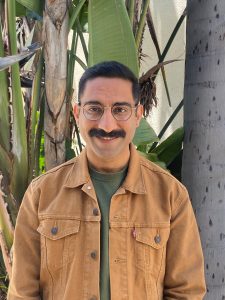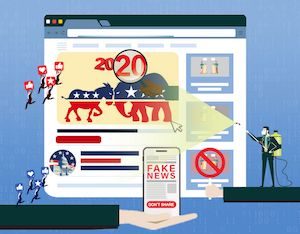The UNC Center for Media Law and Policy is pleased to announce the first-place winner of the annual James R. Cleary Prize for the best student-published scholarly articles on media law and policy. The award comes with a $1,000 cash prize.

Rohan Grover
This year’s winner is Rohan Grover, a doctoral candidate at the Annenberg School for Communication and Journalism at the University of Southern California. His article is titled “Contingent Connectivity: Internet Shutdowns and the Infrastructural Precarity of Digital Citizenship.” While previous research has largely interpreted Internet shutdowns as curtailments of freedom of expression, this article evaluates the implications for citizenship itself by bringing together scholarship on digital governance, science and technology studies (STS) approaches to Internet governance, and postcolonial and decolonial theory. Notably, this article raises the stakes for critical analysis of how authoritarian states approach Internet policy to bridge digital divides—and for evaluating quality and contingency of connectivity experienced by marginalized and peripheral communities.
Rohan’s research explores the politics of technology policy. Specifically, his dissertation project examines the sociotechnical construction of “user consent” in the emerging privacy tech industry, which develops standards for data privacy and, increasingly, AI governance. His ethnographic research draws on science and technology studies, critical data studies, critical policy studies, and feminist and queer analysis of consent to unpack the politics of data governance and privacy law in action.
Rohan’s work has been published in New Media & Society; Political Communication; Telecommunications Policy; Information, Communication & Society; The Information Society; the Journal of Information Policy; and in conference proceedings for the ACM Conference on Human Factors in Computing Systems (CHI) and the Association of Internet Researchers (AoIR). His research has been supported by funding from the National Science Foundation as well as academic associations across disciplines such as the International Communication Association (ICA), the Association for Education in Journalism and Mass Communication (AEJMC), and the American Political Science Association (APSA). His work has also been recognized with two Top Student Paper Awards at ICA.
Prior to pursuing a PhD, Rohan worked as a product manager and data strategist at digital media and advocacy organizations such as HuffPost, MoveOn, Planned Parenthood, Upworthy, and Jhatkaa.org. He received an MA in Media, Culture, and Communication from New York University and a BS in Economics with a minor in Asian American studies from the Wharton School at the University of Pennsylvania.




 At long last, the article Evan Ringel and I wrote on
At long last, the article Evan Ringel and I wrote on